
Verpod 100 Dry Syrup
Manufacturer
Verrmont Healthcare Pvt Ltd
Salt Composition
Cefpodoxime Proxetil (100mg/5ml)
Key Information
Short Description
Verpod 100 Dry Syrup is an antibiotic medicine used to treat a wide range of bacterial infections in children.
Dosage Form
Oral Suspension
Introduction
Verpod 100 Dry Syrup is an antibiotic medicine commonly given to children for the treatment of bacterial infections targeting the ears, eyes, nose, throat, lungs, skin, gastrointestinal tract, and urinary tract. It is also effective in treating typhoid fever in children and adolescents.
Directions for Use
Give this medicine with food to avoid an upset stomach. Encourage your child to drink plenty of water in case diarrhea develops as a side effect.
Safety Information
Side Effects
No common side effects listed
Interacting Medicines
Magaldrate Sodium Bicarbonate
How it works
Verpod 100 Dry Syrup is an antibiotic that works by preventing the formation of the bacterial protective covering (cell wall) which is essential for the survival of the bacteria.
Quick Tips
Your child must complete the entire course of antibiotics. Stopping too soon may cause the bacteria to multiply again or cause another infection. Give this medicine with food to avoid an upset stomach. Encourage your child to drink plenty of water in case diarrhea develops as a side effect. Conditions like common cold and flu are caused by viruses. Never use this medicine for such conditions. Only give Verpod 100 Dry Syrup to your child for their current infection. Never save medicine for future illnesses.
Related Medicines
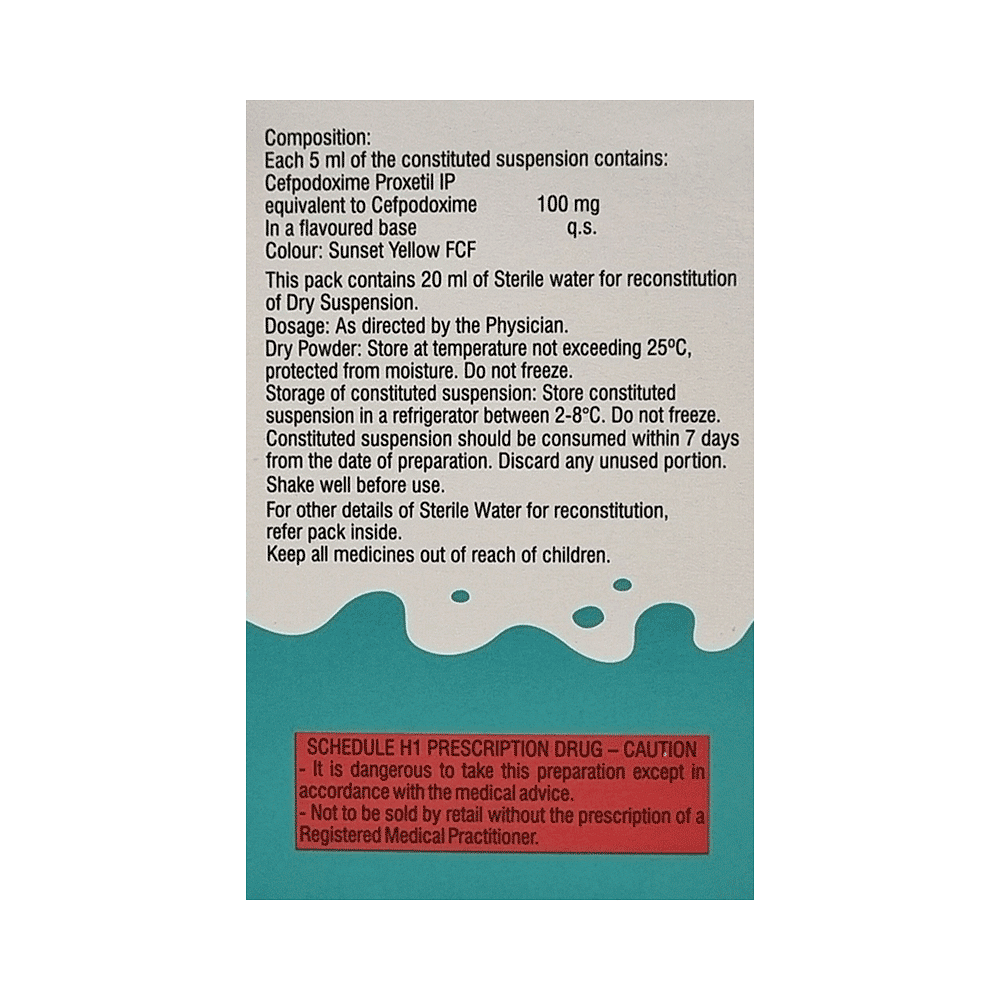
Cepodem 100 Dry Suspension
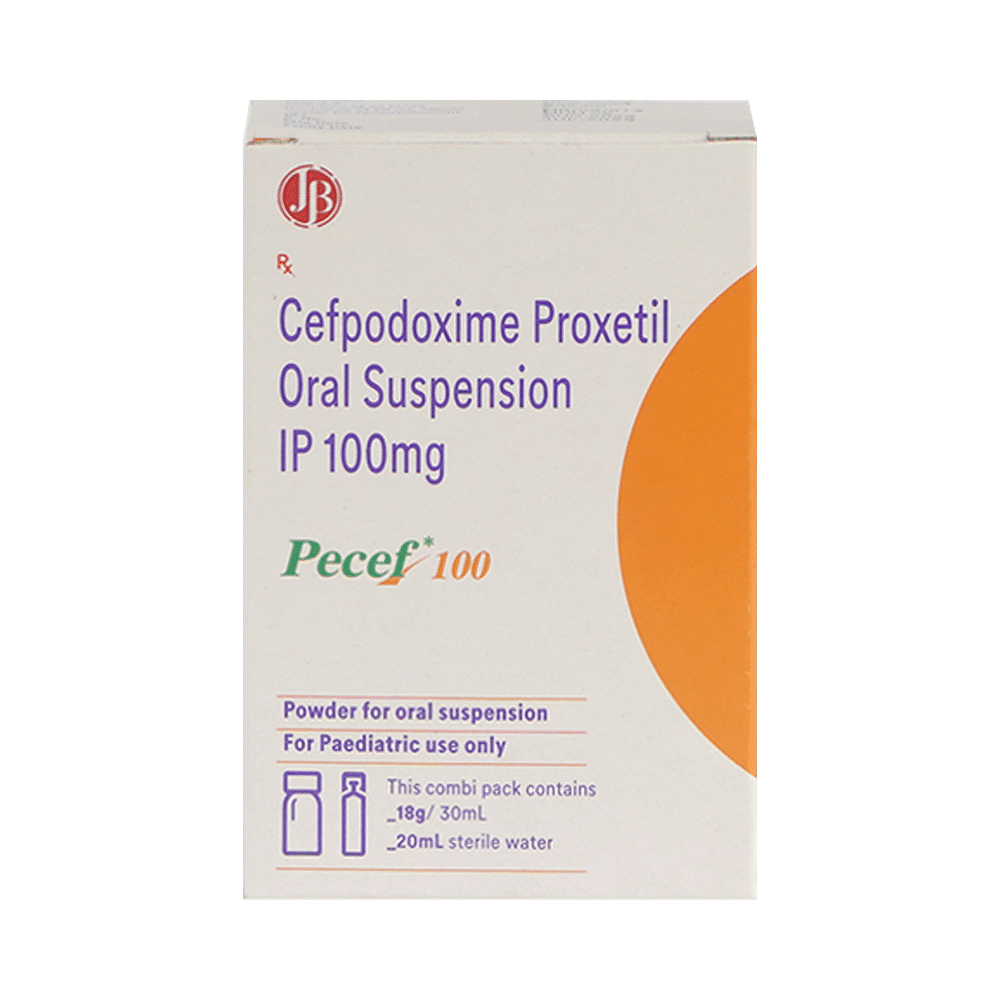
Pecef 100 Powder For Oral Suspension
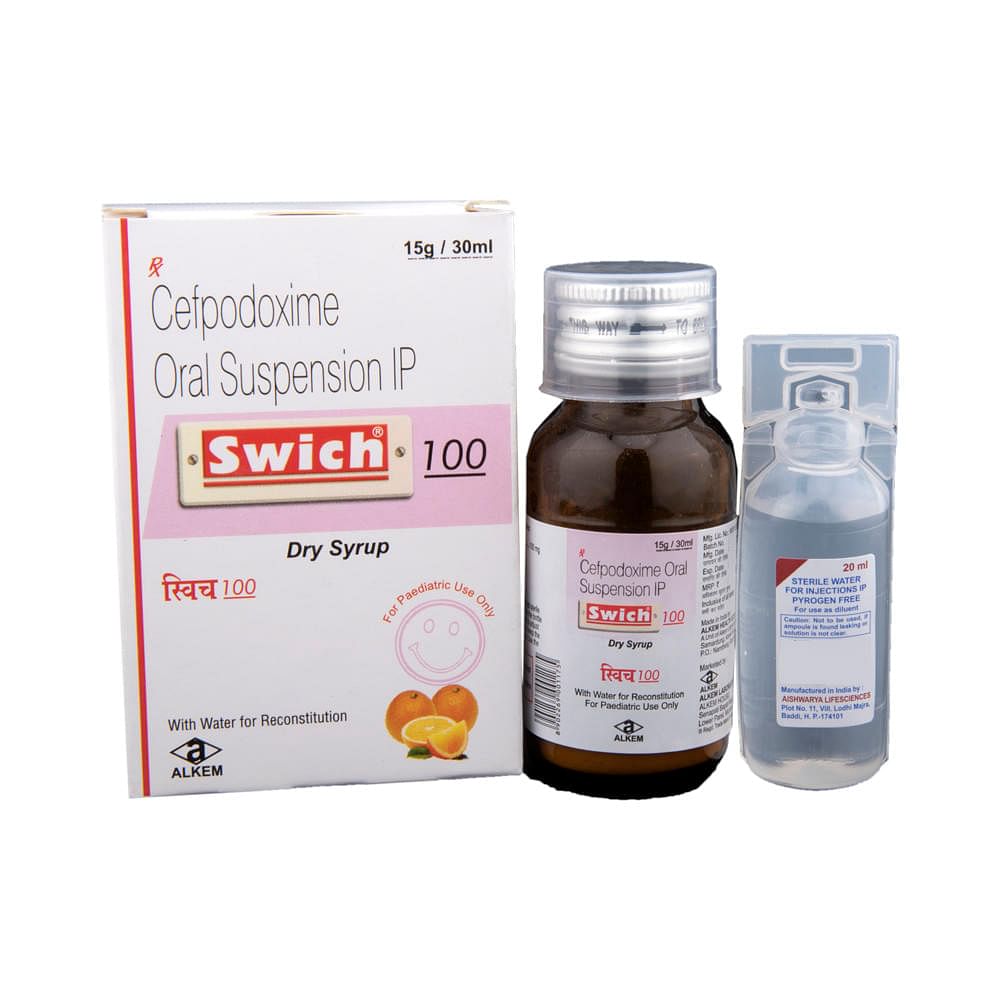
Swich 100 Dry Syrup

Doxyprox 100 Oral Suspension Mango
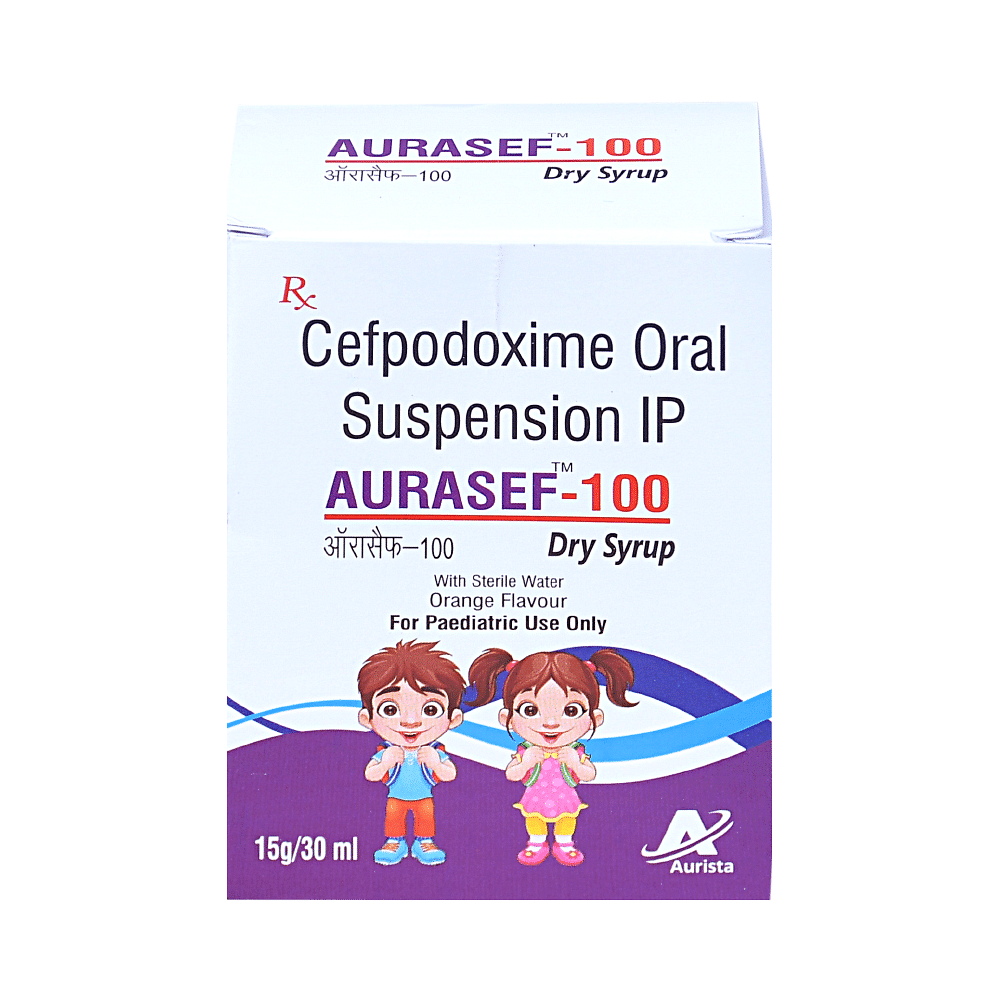
Aurasef 100 Dry Syrup

Monotax O 100 Dry Syrup
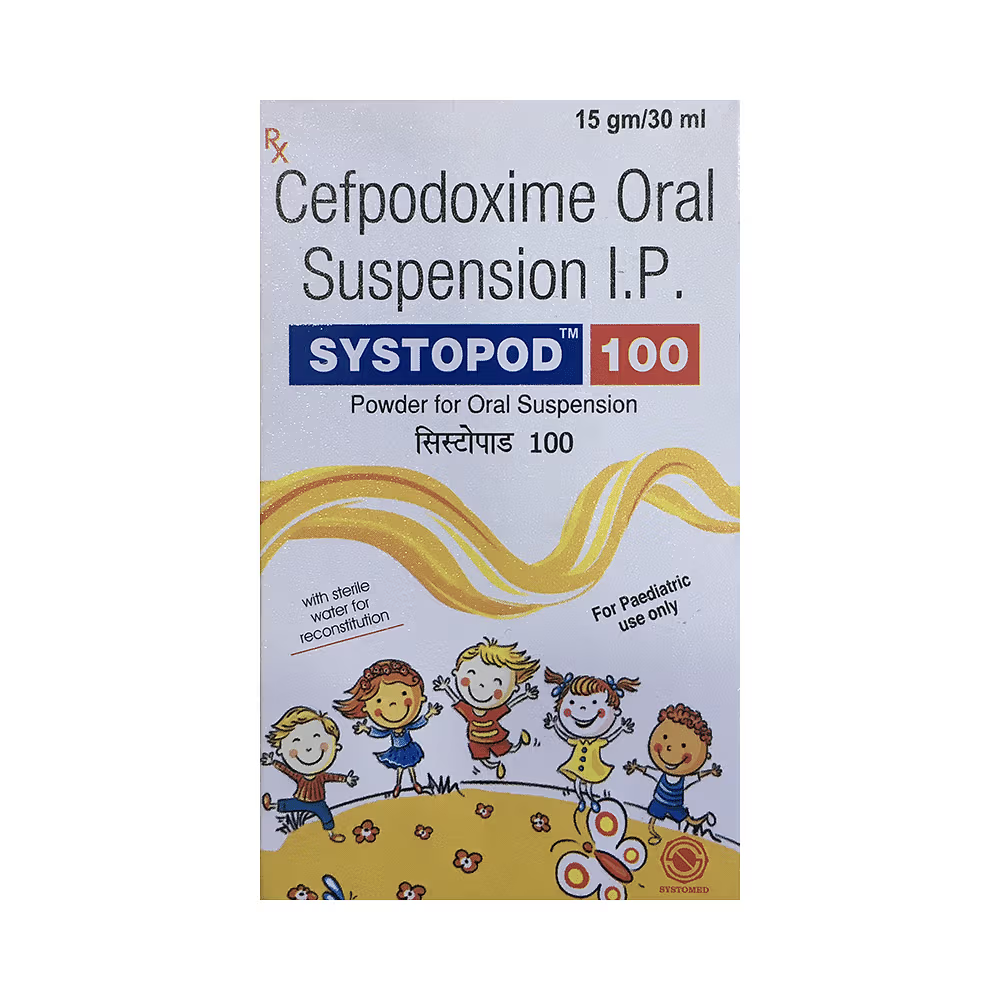
Systopod 100 Oral Suspension

Sundoxim 100 Dry Syrup Orange

Biopod 100 Oral Suspension
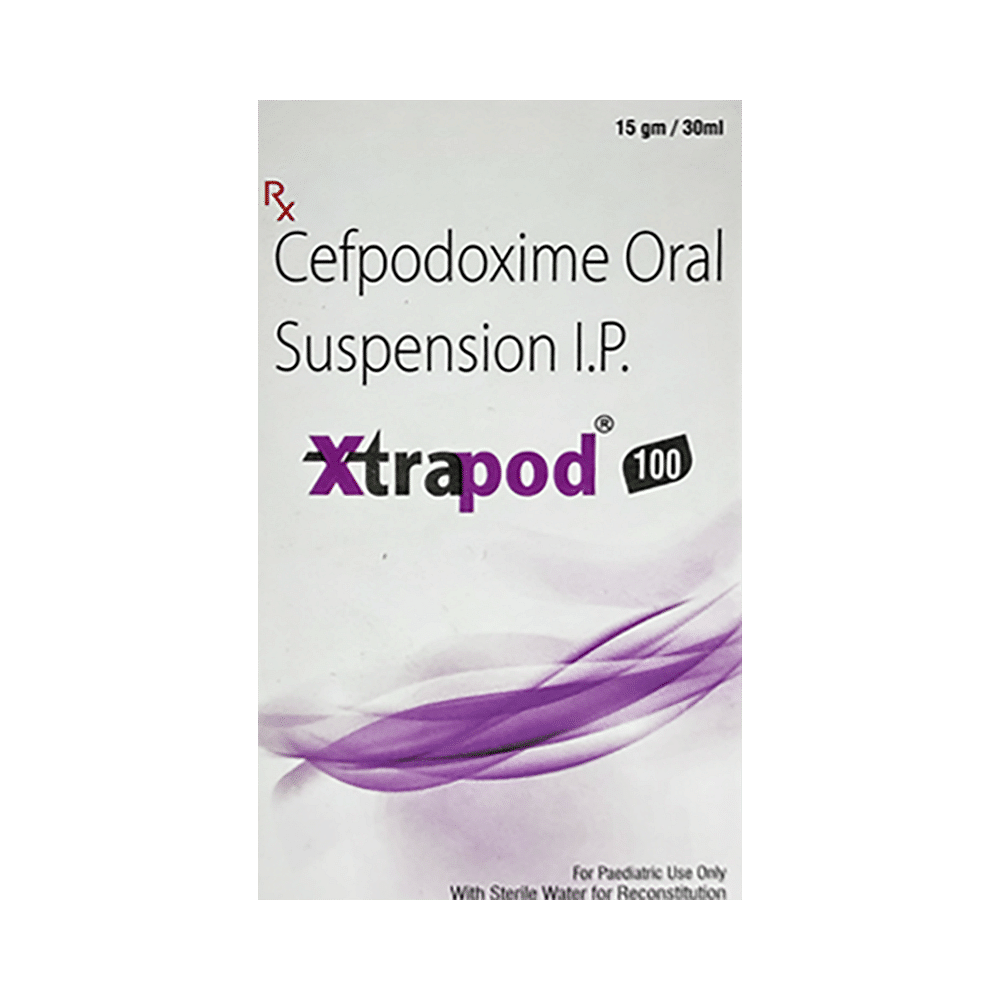
Xtrapod 100 Oral Suspension
Frequently asked questions
What if I give too much of Verpod 100 Dry Syrup by mistake?
Giving an extra dose of Verpod 100 Dry Syrup is unlikely to cause harm. However, if you suspect your child has taken more than the recommended dosage, contact a doctor immediately. Overdosing can lead to unintended side effects and potentially worsen their condition.
Are there any possible serious side effects of Verpod 100 Dry Syrup?
Verpod 100 Dry Syrup may cause some serious side effects, such as persistent vomiting, kidney damage, allergic reactions, diarrhea, and severe gastrointestinal infections. If you notice any unusual symptoms or your child experiences a sudden worsening of their condition after taking Verpod 100 Dry Syrup, consult with a doctor immediately.
Can other medicines be given at the same time as Verpod 100 Dry Syrup?
Verpod 100 Dry Syrup may interact with other medications or substances. It is crucial to inform your child's doctor about any other medications they are currently taking before starting Verpod 100 Dry Syrup. Always consult a healthcare professional for advice on administering medication to children.
Can I get my child vaccinated while on treatment with Verpod 100 Dry Syrup?
Generally, antibiotics do not interfere with vaccines or cause adverse reactions in children who have recently received one. However, it is essential to consult a doctor before giving your child a vaccine if they are taking antibiotics. Once the infection clears, you can schedule the vaccination. Always check with a healthcare professional for guidance.
Which lab tests may my child undergo while taking Verpod 100 Dry Syrup on a long-term basis?
Your doctor may recommend periodic kidney and liver function tests to monitor your child's health while on treatment with Verpod 100 Dry Syrup.
The mucus coming out of my child’s nose is yellow-green. Is it a sign of a bacterial infection?
Yellow or green nasal discharge does not always indicate a bacterial infection. During a common cold, the mucus may thicken and change color from clear to yellow or green. Symptoms typically subside within 7 to 10 days.
My child is having a sore throat and ear infection. Can I give antibiotics?
No, antibiotics are not recommended for viral infections such as sore throats and ear infections. Antibiotics only work against bacterial infections. If your child has a sore throat, runny nose, barking cough, pain, and discharge from their ear, it is likely caused by a virus.
Does a common cold caused by viruses always result in a secondary bacterial infection? When to start an antibiotic to prevent infection?
Most often, viral infections do not lead to secondary bacterial infections. It's important to use antibiotics only after consulting with your child's doctor and only when indicated.
Can Verpod 100 Dry Syrup impact my child’s digestive system?
Children often have a sensitive stomach, leading to upset stomachs while taking antibiotics. Additionally, the use of antibiotics can disrupt their healthy gut flora by potentially killing beneficial bacteria along with the bad bacteria. If your child experiences diarrhea after taking Verpod 100 Dry Syrup, do not stop the medication course immediately. Instead, contact your child's doctor for advice and potential adjustments to the dosage.
Can Verpod 100 Dry Syrup lead to bacterial resistance in my child?
Yes, the irregular use, frequent use, and misuse of Verpod 100 Dry Syrup can contribute to bacterial resistance. This means that bacteria may become resistant to antibiotics, requiring stronger or different medications for treatment. Always follow your doctor's instructions and use antibiotics as prescribed.


